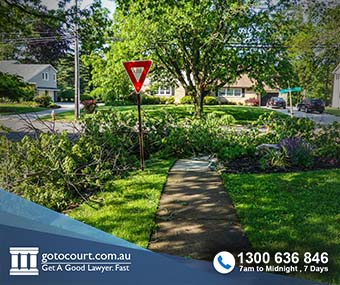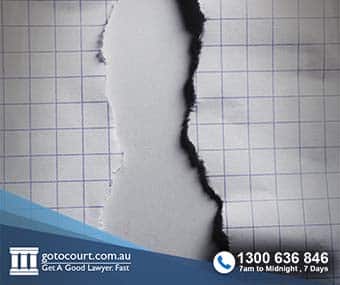Call our lawyers
now
or,
have our lawyers
call you
Residential Tenancies (WA)
Updated on Dec 07, 2023 • 5 min read • 506 views • Copy Link
Residential Tenancies (WA)
Residential Tenancies (WA)
Residential tenancies in Western Australia are regulated under the Residential Tenancies Act 1987, which sets out the rights and obligations of tenants and landlords when commencing a tenancy, what to do during a tenancy, ending a tenancy, and resolving any problems that arise. This article sets out a summary of the rights and obligations of a residential tenant in Western Australia.
Rental agreement
The Act requires both parties to a rental agreement to sign a standard, prescribed rental agreement form (Form 1AA).
This form cannot be altered, though both parties are entitled to add special clauses that they have agreed upon. Any additional clauses must not contradict the provisions of the Act.
The tenant must be provided with a copy of the agreement, after it has been signed by the landlord/property manager, and themselves, within 14 days of signing.
The tenant must also receive a copy of the ‘Information for Tenant’ form (Form 1AC).
Property condition report
At the start of the tenancy, both parties must complete a property condition report (Form 1), which sets out the condition and contents of every room in the dwelling. The landlord/property manager must complete this report and provide two copies to the tenant within seven days of the start of the tenancy. The tenant in turn must make note of any item they disagree with and return the form within seven days.
If the tenant fails to complete and return the report, then it is assumed that they agree with the content of the report. At the end of the tenancy, the rental provider must complete a further report and provide a copy to the tenant. This must occur within 14 days of the end of the lease.
Bonds
A bond is the money paid by a tenant at the start of a tenancy to be used to cover the costs of any repairs or other expenses required to be paid by the tenant at the end of the tenancy.
Bond money remains the property of the tenant throughout the tenancy, but will only be released at the end of the lease if both the landlord and tenant agree that the property has been returned in the appropriate condition. If there parties do not agree about this, a bond can only be returned by order of the Magistrates Court of Western Australia.
Bonds are lodged with the Bond Administrator at the Department of Commerce until the tenancy ends. If there is more than one tenant in a sharehouse, then each tenant must note on the form the amount that they contributed to the bond.
The amount of a bond must not be more than four weeks of rent.
Ending a residential lease
A tenant can end a residential lease under the following circumstances:
- At the end of a fixed-term lease, by providing 30 days written notice of their intention not to renew (Form 1C)
- At any time during a periodic tenancy, by providing 21 days’ notice in writing (Form 1C)
- Where the premises is damaged such as to be uninhabitable or is acquired by law, the tenant may end the agreement after providing at least two days’ notice (Form 1C)
- By order of the Magistrates Court of Western Australia, where a landlord has breached the terms of the agreement
- At any time by mutual agreement in writing with the landlord.
A landlord can end a residential lease under the following circumstances:
- For non-payment of rent (Forms 1A and 1B) after the tenant has been granted a further 14 days to pay
- Where the tenant has breached the agreement and fails to remedy the breach within 14 days (Form 1C)
- Where the premises are damaged such as to be uninhabitable or are acquired by law, the tenant may end the agreement after providing at least seven days notice (Form 1C)
- Under a periodic tenancy, with 60 days’ notice
- Under a periodic tenancy, due to the property’s sale, with 30 days’ notice
- By order of the Magistrates Court of Western Australia, where the tenant has or is likely to damage the property, injure a neighbour, the landlord or the agent
- At any time by mutual agreement in writing with the tenant.
Resolving residential tenancy disputes
Residential tenancy disputes most often arise about property damage, unpaid rent, maintenance of the property, return of the bond, and termination of the rental agreement.
The first step in any dispute is to attempt to resolve the dispute with the other party amicably. If this fails, a complaint can be made to Consumer Protection, which may be able to assist in resolving the situation through negotiations.
If the dispute cannot be resolved through negotiations, a party may apply to the Magistrates Court of Western Australia to have the matter determined. Applications are made under the minor case division, which can hear claims involving up to $10,000.
If you require legal advice or representation in any legal matter, please contact Go To Court Lawyers.

Affordable Lawyers
Our Go To Court Lawyers will assist you in all areas of law. We specialise in providing legal advice urgently – at the time when you need it most. If you need a lawyer right now, today, we can help you – no matter where you are in Australia.How It Works







1. You speak directly to a lawyer
When you call the Go To Court Legal Hotline, you will be connected directly to a lawyer, every time.


2. Get your legal situation assessed
We determine the best way forward in your legal matter, free of charge. If you want to go ahead and book a face-to-face appointment, we will connect you with a specialist in your local area.


3. We arrange everything as needed
If you want to go ahead and book a fact-to-face appointment, we will connect you with a specialist in your local area no matter where you are and even at very short notice.



















